Eid ul Adha is the second of the two major religious holidays celebrated by Muslims across the world.
While Eid ul Fitr is a time for celebration after the holy month of Ramadan, celebrations for Eid ul Adha around the world commemorate and honour the willingness of Prophet Ibrahim (AS) to sacrifice his son, Prophet Ismail (AS). By the grace of Allah, a lamb was sacrificed in place of the child, and to this day, Muslims salute the courage of Prophet Ibrahim (AS) and the willingness of Prophet Ismail (AS) by sacrificing animals bought or raised by them, if they can afford to do so.
The sacrificed meat is then divided into three shares: one is kept for the person’s own home, one for their relatives, and one for the poor and underprivileged in the community. The purpose behind the division is to give everyone a chance to celebrate the occasion on an equal footing, with a festive meal being prepared in most homes.
However, while the process of sacrificing animals is the same, celebrations for Eid ul Adha around the world differ greatly, mainly because it is often illegal to sacrifice animals on your own in some countries, as is common in Pakistan. Some countries have dedicated slaughterhouses for this purpose, while some don’t provide this provision at all, leaving people to send money to their home country or other Muslim nations where the Qurbani can be performed on their behalf with ease.
We’ll take you on a tour around the world and show you how celebrations for Eid ul Adha differ from what we commonly see in Pakistan.
Celebrations for Eid ul Adha in Different Countries
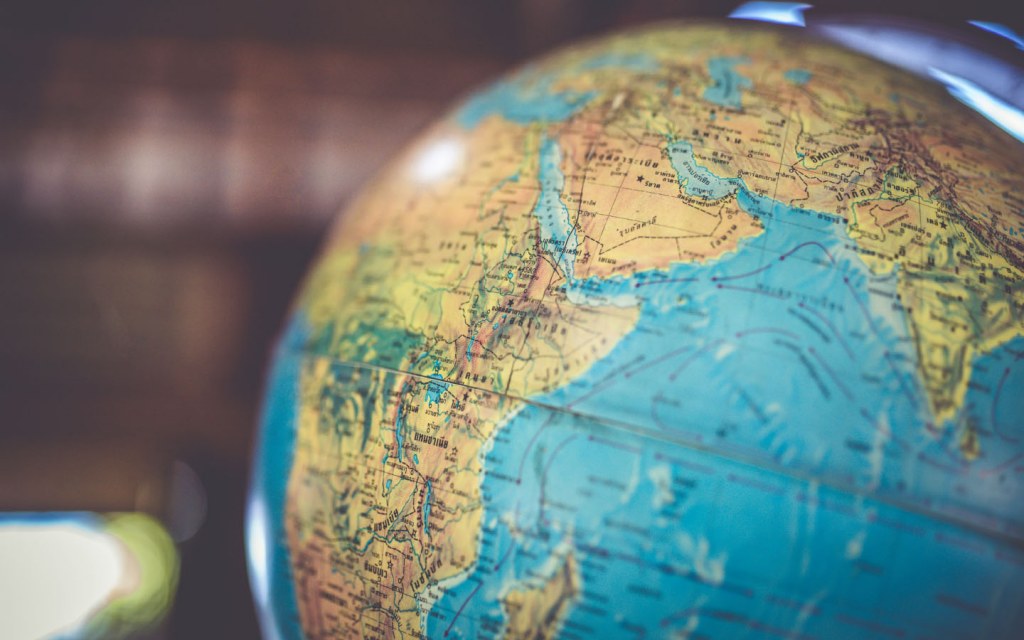
Here is a list of the countries we’ll cover as we share just how Eid ul Adha is celebrated across the globe:
Pakistan
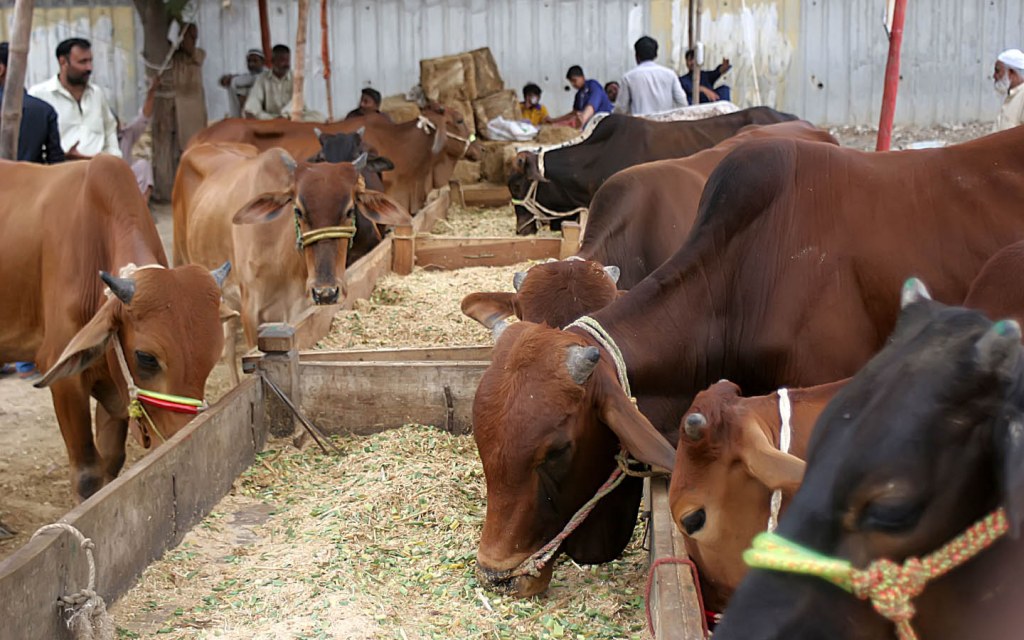
Eid ul Adha is a four-day celebration in Pakistan, determined every year after the sighting of the moon to mark the beginning of the Islamic month of Dhul Hijjah. On the 10th day of the month, the day starts with the male members of the family heading for Eid prayers, after which, they return home to sacrifice the cow, goat, sheep or camel that they purchased in advance from one of the many cow and goat mandis in Pakistan.
While the sacrifices carry on for three days, the event begins long before then, with some people buying sacrificial animals almost a month in advance. Friends and neighbours then gather together to take care of the animals up to the day of the sacrifice with children enjoying themselves the most. Homeowners often have enough space to keep their animals indoors, while people living in apartments in a populous city like Karachi have no option but to keep them in a communal tent that is generally put up on the roadside near their residence.
The occasion is an official holiday declared by the government and after the sacrifice; children enjoy visiting relatives with their parents to distribute the meat. Barbeque parties are also quite common during the season with many people owning a small grill on which they smoke and cook offal as well as meat and chicken for a family feast.
The UAE
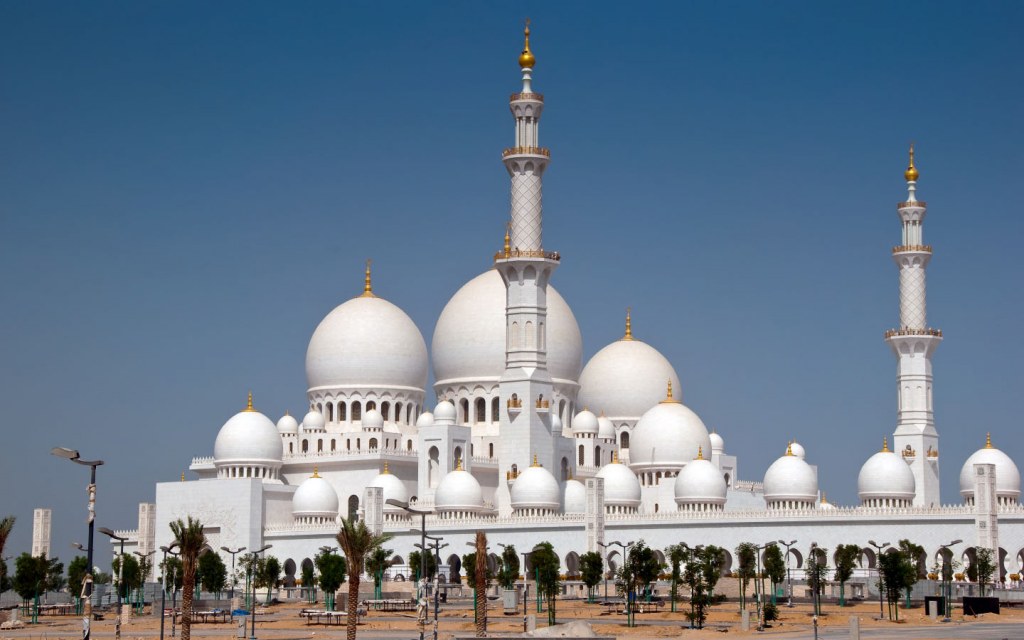
Being a Muslim state, the UAE also observes a public holiday on Eid ul Adha of about 3-4 days. Muslims in the UAE visit communal prayer grounds or ‘Eidgahs’ where prayers and a sermon are held. After wishing each other ‘Eid Mubarak’, people dress up in their festive best and share sweet treats with their neighbours while giving ‘Eidi’ to the younger members of the family.
While people can slaughter animals in their own home in the UAE, provided they clean up after themselves, the government authorities stress on the importance of sacrificing the animals properly to avoid diseases and urge people to register their sacrifices in public slaughterhouses where the livestock will be checked for diseases, and the authorities will ensure proper transportation of the meat.
Iran
When we consider celebrations for Eid ul Adha around the world, we must talk about our neighbour, Iran, where Eid ul Adha is celebrated in a style that is similar to the UAE, where communal slaughterhouses are used for animal sacrifices, and people go for Eid prayers in the morning before heading to the slaughterhouse to collect the meat. They then dress in their finest attire and celebrate with a feast of mutton or beef with their loved ones. Eid ul Adha is a public holiday in the country.
Tajikistan
In the past, Bakra Eid in Tajikistan was celebrated in pretty much the same way as Pakistan, with people being allowed to sacrifice animals on the streets near their home. However, with new laws in place, all sacrifices must now be performed inside the designated premises. The day begins with Eid prayers, after which, children come around to visit the neighbours and are rewarded with sweets and money for looking their best in their new clothes.
The men then move to the authorised areas where the animals are sacrificed, and the preparation for the feast begins as soon as the meat is brought home. In Tajikistan, the children of the house serve this meal, starting with appetisers including fruits, pastries, and biscuits and then moving on to the main course of meaty dishes. The meal ends on a sweet note with cakes and sweets. There are also separate eating areas for men and women in a household and neighbours can freely drop by and join the feast, as it is an open-door policy.
Turkey
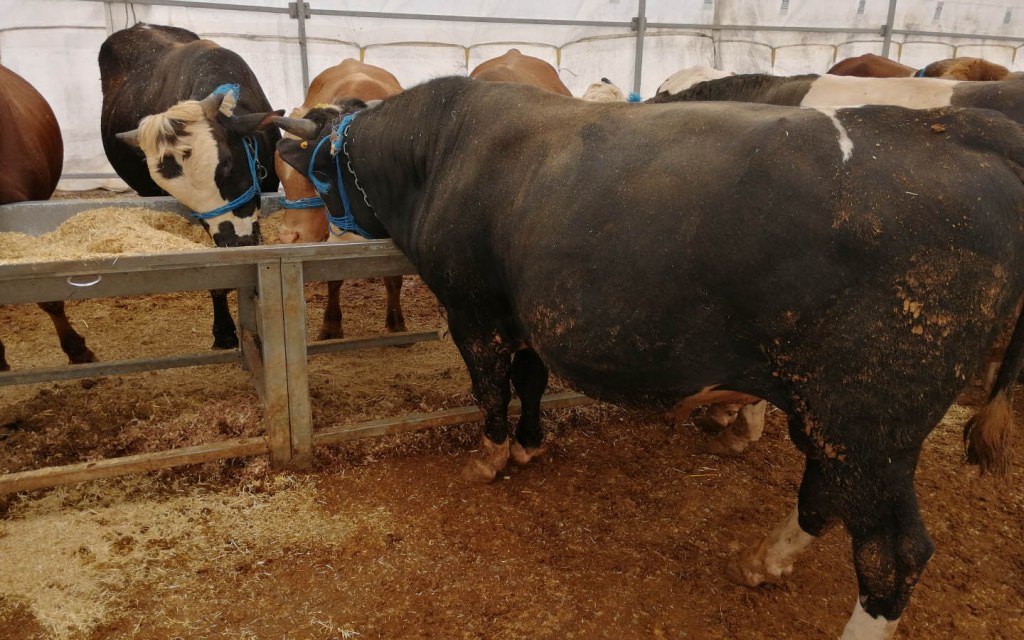
When the day of the Sacrificial Feast rolls around, men of the family will generally head for prayers in the morning, returning to sacrifice an animal (usually sheep) in the name of Allah. It is illegal in Turkey to sacrifice animals anywhere other than the authorised abattoirs/slaughterhouses, most of which are built on the outskirts of larger cities. However, while the Turkish people are just as eager to visit family and friends to spend the holiday with them, many will skip on sacrificing animals, opting to donate that same money to charity instead, which is an option that is permissible in the country.
African Nations
In most of the Muslim countries in Africa, such as Tunisia, Morocco, and Egypt, celebrations for Eid ul Adha begin with men offering Eid prayers, sacrifice an animal, such as a sheep, goat, or ram and enjoy a feast with their families. It is a public holiday and a time to not only share a festive meal with loved ones but also to remember the less fortunate and to ensure that they, too, get to enjoy a meaty feast with their families.
Muslim Minority Regions
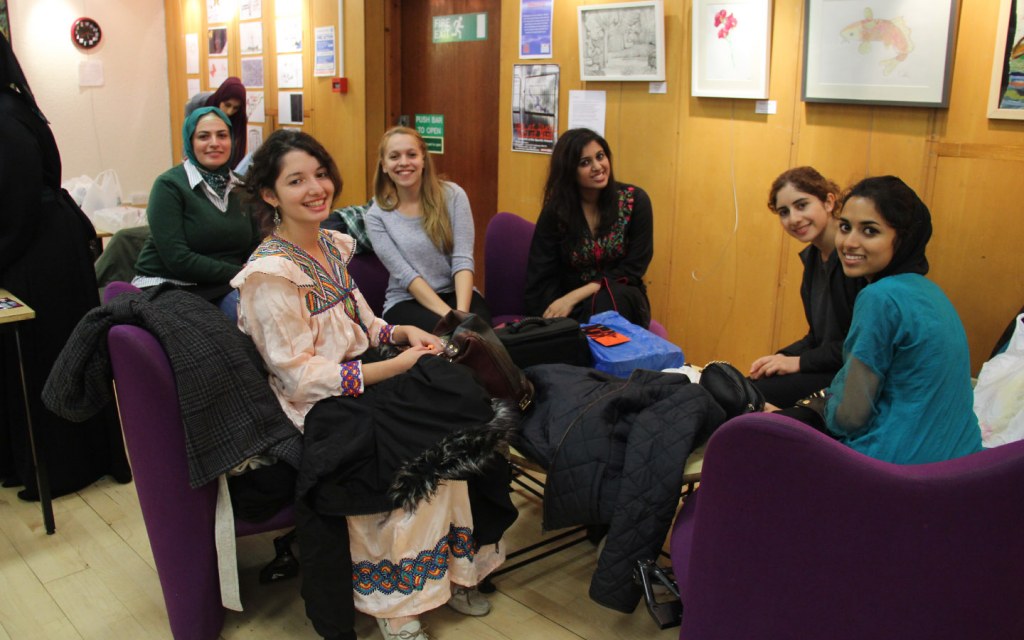
Parts of Europe, the UK, the US, Canada, and Australia all celebrate Eid ul Adha in a similar vein to each other, which is slightly different from celebrations for Eid ul Adha around the world in Muslim countries. The day begins with prayers being held for both men and women at the local mosques or in a designated space, after which, the community greets one another and heads home to spend time with their loved ones. While many people do have the option of pre-booking their sacrifices at local Halal butcheries, many prefer to have them sacrificed in their homeland, be it Pakistan or elsewhere.
However, even when sacrifices are not being performed, traditions run high and are followed by preparing meaty feasts for the entire family to enjoy. Many people host barbeque parties at their homes for Muslim neighbours and friends, while others attend fairs, festivals, and galas hosted by the local Islamic centres.
It is important to note that Eid ul Adha is not a public holiday in these parts of the world and while some people may choose to take the day off from work/school, others simply attend the prayers and resume their weekly routine. This is also why celebrations and barbeques are often delayed to the weekend following Eid, making it is easier for people to join in the festivities.
Indonesia
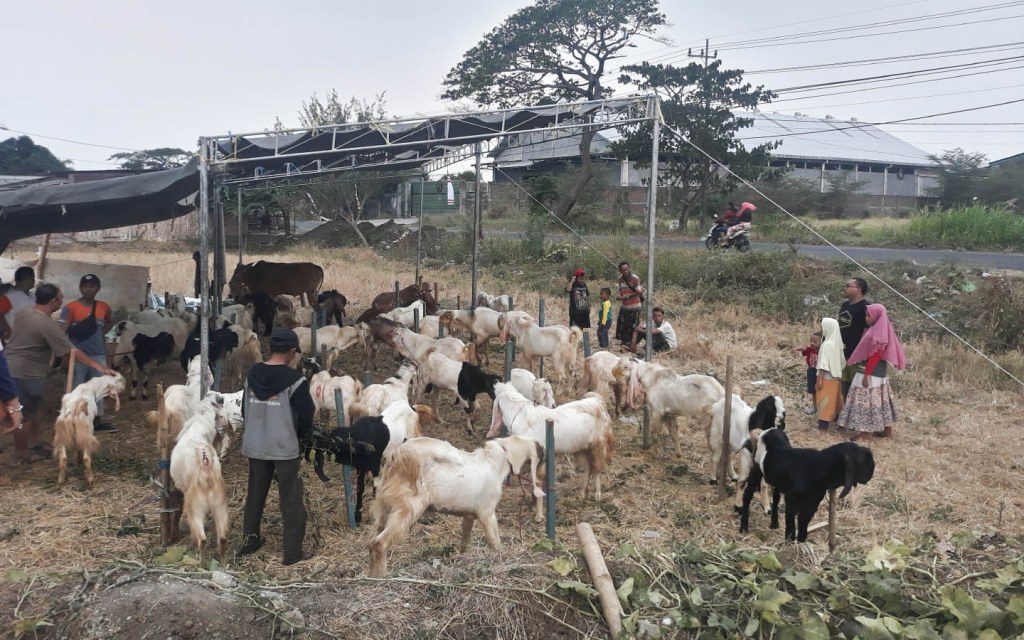
Celebrations for Eid ul Adha in Indonesia might remind you of Pakistan if you choose to visit it during the season because like our own country, people purchase sacrificial animals and they are sacrificed right on the streets after the Eid prayers have been offered. Much like Pakistan, the sacrifice is a communal event with neighbours, family, and friends all gathering to watch the proceedings and help out as needed.
Bangladesh
Having gone through celebrations for Eid ul Adha around the world, we’re now left with only two more countries, both of which are our neighbours to the east. First up is Bangladesh, where government designates sacrificial areas for slaughter every year but fails to enforce the rules, resulting in people performing sacrifices on the streets and in their garages and backyards. Cows, goats, camels, and even buffaloes are sacrificed in the country on the festive occasion.
India
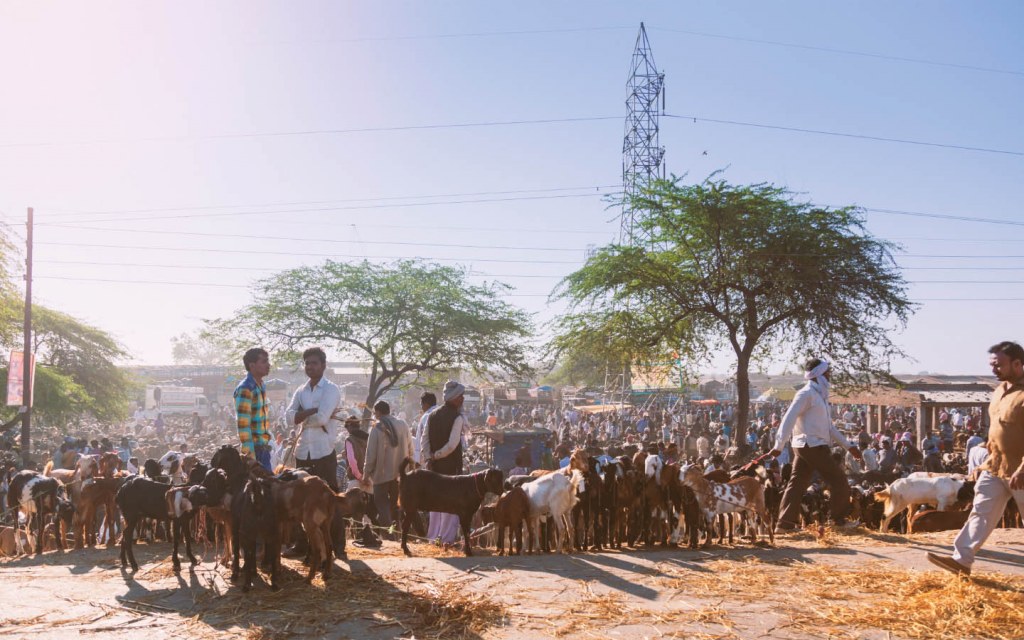
We’ve now come full circle, with India being the last country on our list. Eid prayers are performed here in designated areas, and since cows are considered sacred in the country, Indian Muslims generally sacrifice a goat or a sheep within their homes or local Islamic centres to celebrate the festival. After the meat is ready, a feast is prepared to be enjoyed by the family at home. Authorities warn against sacrificing animals on the streets to avoid any inconvenience for the general populace.
Now you know about celebrations for Eid ul Adha around the world, and even though the ways to celebrate the occasion may differ, the spirit of the festival is the same: to sacrifice something in the name of Allah, to give to those who are needy in your community, and to spend time with your family.
We hope you have a joyous and meaty Eid!
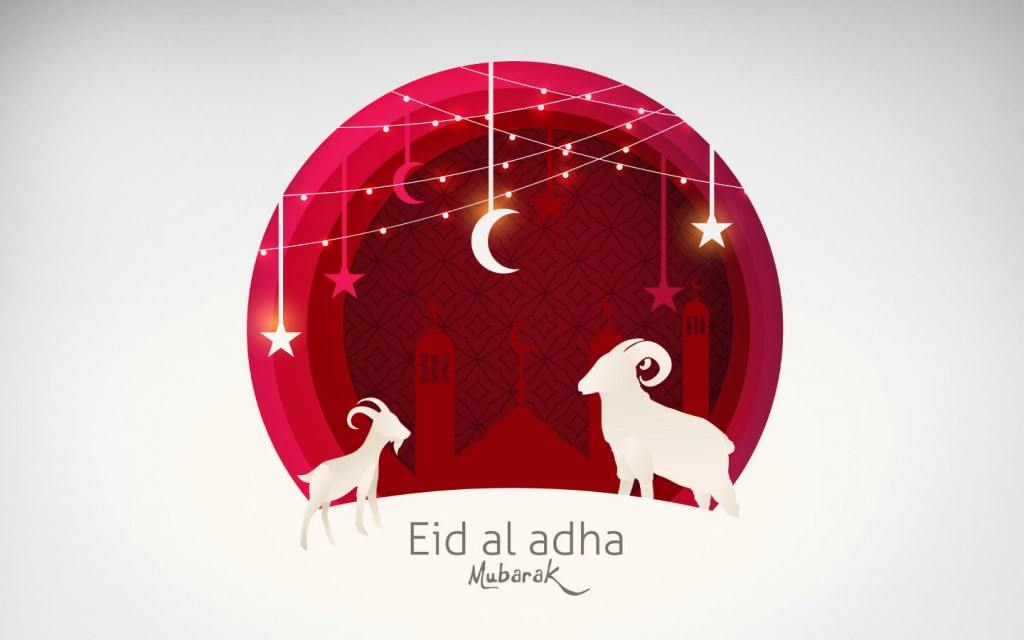
If you have any questions, please feel free to write to us at blog@zameen.com. Moreover, keep following Zameen Blog for more Eid-related posts.



